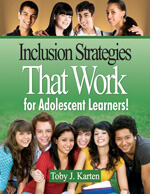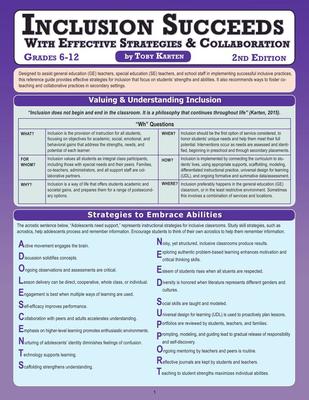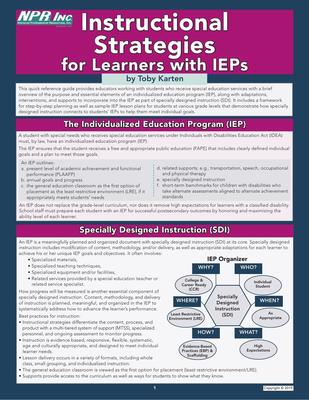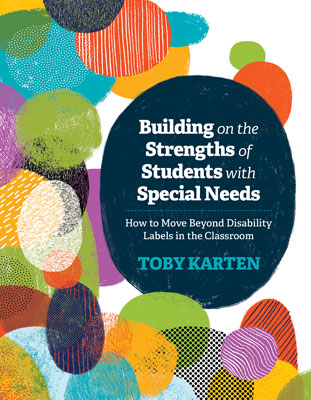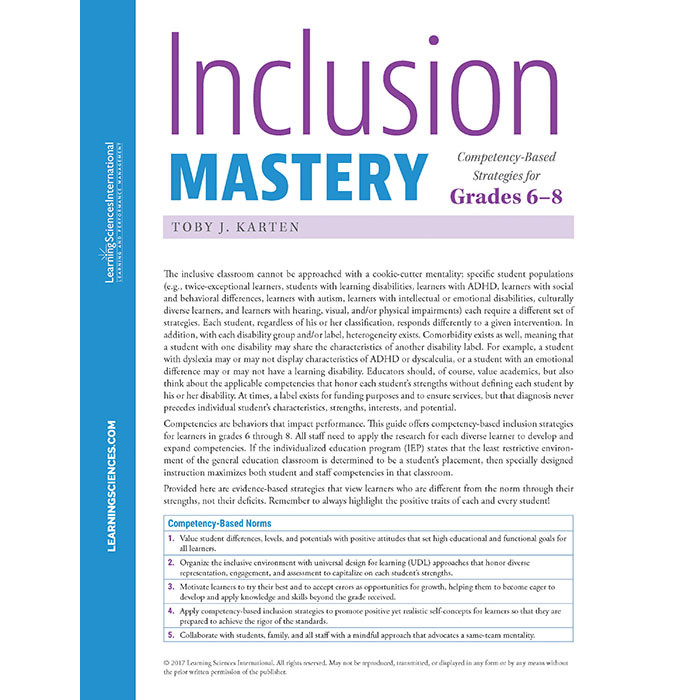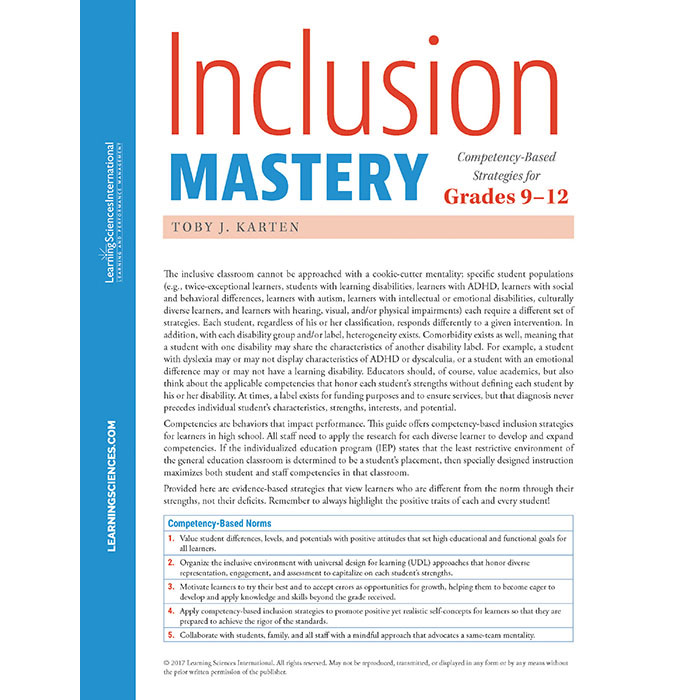Inclusion Workshop W-5
Inclusion Strategies for Middle and High School Learners
Grade Levels: 6-12
Length: 3-6 Hours
Adolescents with and without disabilities often struggle to achieve academic goals, peer acceptances, and feelings of self-worth. The ultimate objective of secondary education is to prepare adolescents with school successes that invite productive postsecondary transitions. This requires that educators employ an array of inclusion strategies that go beyond classification labels and into the abilities and interests of adolescent learners.
Walk away energized and prepared to connect the curriculum standards and inclusion strategies to students in middle school and high school classrooms by learning how to:
- Relate cognitive and psychological theories to adolescents.
- Address the needs of students with ADHD, autism, communication, developmental, learning, social, emotional, behavioral, perceptual, sensory, and physical differences.
- Include interdisciplinary lesson connections that value art, music, dance, theater, technology, global awareness, and collaboration skills.
- Differentiate the instruction with constructivist approaches.
- Collaborate with grade level teams, co-teachers, support staff, and families.
Audiences
Administrators, educators, department chairs, supervisors, curriculum coordinators, and related staff of students in middle schools and high schools.
